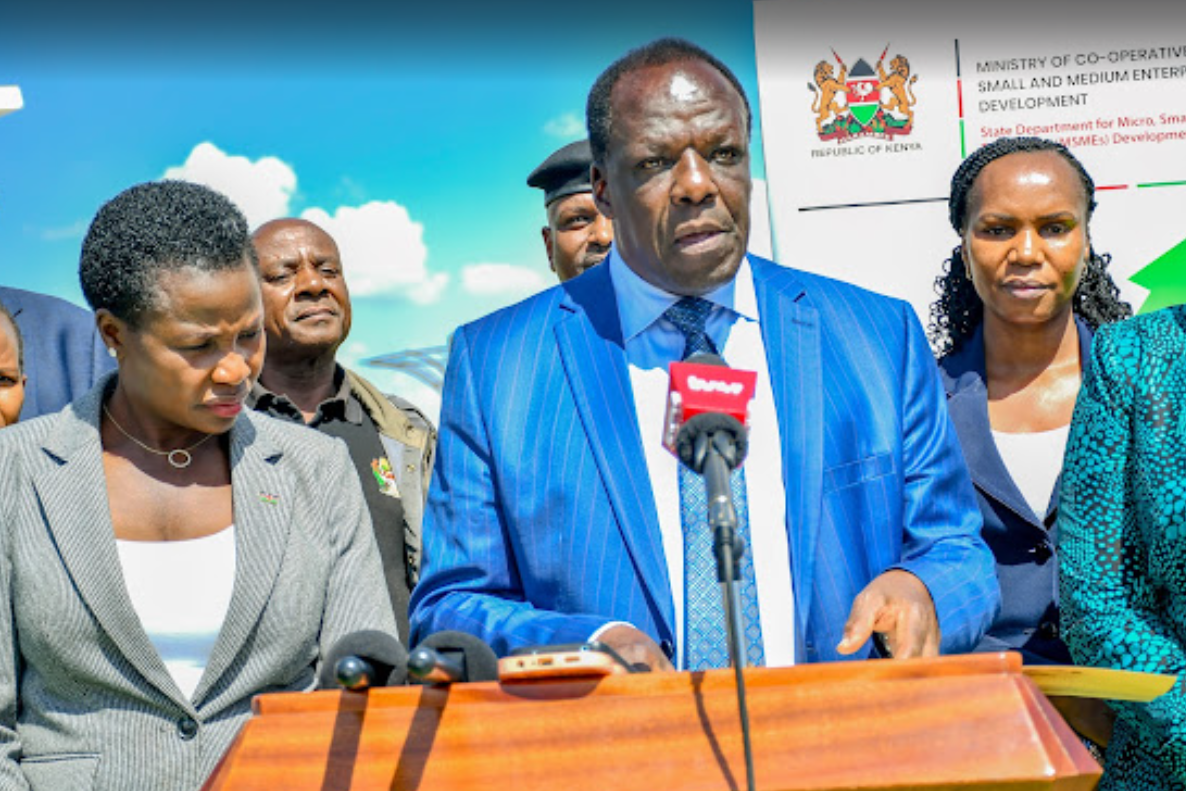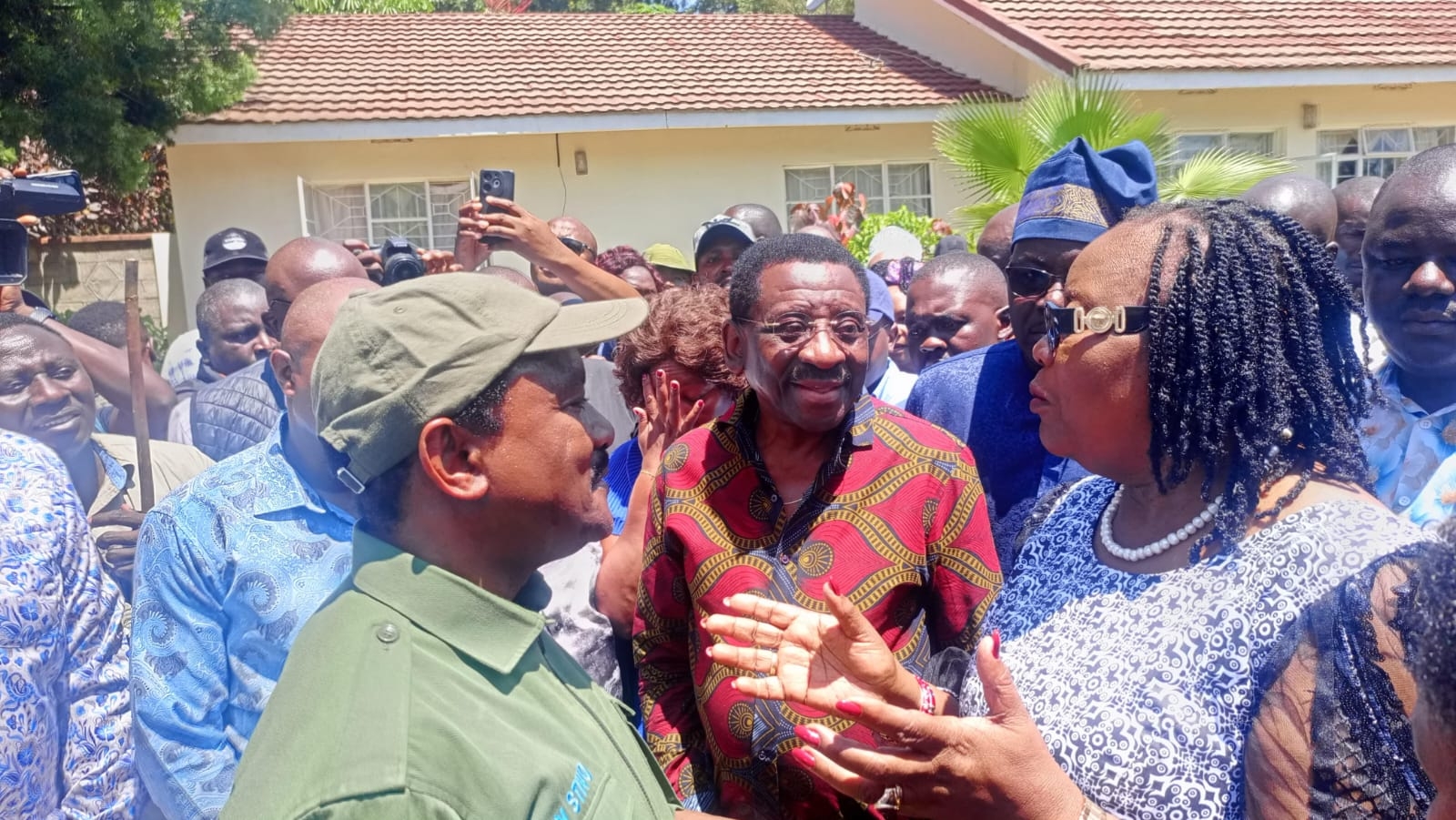
 Cooperatives and MSMEs Development
CS Wycliffe Oparanya /HANDOUT
Cooperatives and MSMEs Development
CS Wycliffe Oparanya /HANDOUT
Kenya plans to use this year’s East African Community MSME expo in Nairobi to push for the speedy implementation of the joint East Africa Market Protocol, which continues to face headwinds.
This comes as Nairobi also welcomes the International Trade Centre (ITC), which is officially launching its new regional office in the capital, a continental hub for Africa, further solidifying Kenya’s role as a gateway for facilitating continental trade and supporting MSMEs.
The 10-day regional trade fair, which kicks off today, will feature a high-level opening session by our President William Ruto on Monday, November 10 and a ministerial roundtable with ITC to discuss the domestication of the global MSMEs.
It will also serve as a major platform for “call to action” and address unresolved challenges such as Non-Tariff Barriers (NTBs), with participation from EAC ministers, AfCFTA and major development partners.
The EAC Common Market Protocol commenced on July 1, 2010, after being signed in 2009, to enable entrepreneurs to operate freely across borders, serve a unified market of over 300 million consumers.
However, its adoption has been slow with almost all member countries still running their trades as separate and distinct markets, keeping their economies disconnected amid protectionism.
The latest move was by Tanzania, which in July this year banned foreigners from participating in trading across 15 services, including the operation and ownership of Micro and Small Industries.
It however softened the stand for Kenya after bilateral-talks albeit back-to-back cross-border trade stand-offs, which have also been seen between Kenya and Uganda in the past.
Kenya and Uganda in August this year also agreed to eliminate existing tariff and non-tariff barriers to facilitate trade, but barriers still exist.
Speaking ahead of the expo, currently in its 25th edition, Kenya’s Cooperatives and MSMEs Development CS, Wycliffe Oparanya, said the Nairobi meeting will serve as a call to action for partner states to accelerate the implementation of the East Africa Market Protocol, to enable free movement of entrepreneurs.
“This will strengthen the EAC Common Market and align our regional trade framework with the broader goals of the African Continental Free Trade Area (AfCFTA), enabling cross-border trade, reducing market barriers and stimulating new opportunities for young entrepreneurs and women-led enterprises to scale their businesses beyond national borders,” Oparanya said.
Tariff and non-tariff barriers affecting East African
trade include customs and administrative procedures, tax measures, unharmonised standards and
import bans.
Other significant barriers include lengthy customs and immigration procedures, multiple roadblocks, delays at weighbridges and the non-harmonisation of regulations, which increase the cost and time of doing business in the region.
Kenya is keen to push for more open borders in the region and has reaffirmed its commitment to deepening economic integration under the framework of the East African Community (EAC) Treaty and the EAC Common Market Protocol.
The protocol envisions a region where goods, services, labour and capital move freely by creating an enabling environment for MSMEs to thrive beyond national borders.
The 25th edition will bring together more than 3,000 exhibitors drawn from across the region, all showcasing products and services that represent East Africa’s diversity, cultural expression, and innovation.
CS Oparanya noted that the MSME Trade Fair has evolved into the region’s largest and most influential marketplace for innovators, artisans and entrepreneurs, driving integration, enterprise and shared prosperity across the eight partner states of Kenya, Uganda, Tanzania, Rwanda, Burundi, South Sudan, the Democratic Republic of Congo, and now Somalia.
Kenya sees the MSMEs sector as key in helping address unemployment, as it accounts for over 70 per cent of employment in the country.
The country is
also building on its export markets as Africa remains a key destination, having
slightly recorded a drop last year.
According to the Economic Survey 2025, the country exports destined to the African continent declined by 2.1 per cent from Sh435.0 billion in 2023 to Sh425.6 billion in 2024 with that of exports to the EAC totalling Sh321.4 billion.
“The decline was largely on account of decreased export revenues from Somalia, Egypt, Tanzania, and South Sudan. Specifically, there was a decline in domestic exports of tomato sauces and re-exports of unassembled tractors to Tanzania,” the survey states.


















